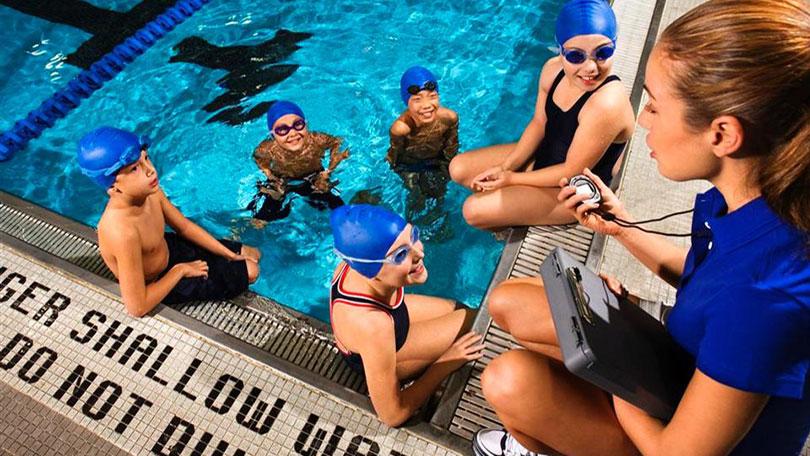Are you passionate about swimming and looking to turn your love for the water into a rewarding career? Whether you’re a trained lifeguard, swim instructor, coach, or water safety advocate, the swimming industry offers a diverse range of job opportunities. In this article, we explore 232 swim-related jobs that could be the perfect fit for your skills and interests, from entry-level positions at local pools to advanced roles in competitive aquatic sports and marine research. Dive in to discover how your enthusiasm for swimming can lead to a fulfilling profession.
Top Swimming Careers Beyond Competitive Sports
Swimming skills open doors to a variety of rewarding professions that extend far beyond the competitive pool. Many find fulfilling careers in aquatic therapy, where water-based rehabilitation helps patients recover from injuries or improve mobility. Others pursue paths as lifeguards and swim instructors, playing vital roles in water safety and skill development for all ages. These roles not only rely on athletic ability but also emphasize communication, patience, and a passion for empowering others through water.
For those seeking a blend of science and sport, positions as marine biologists or underwater photographers offer creative outlets with a direct connection to aquatic environments. Additionally, careers in swimming pool design and maintenance cater to those with technical expertise who wish to enhance the experience of others through innovative, safe aquatic spaces. Below is a snapshot of some standout options:
| Career | Key Skills | Average Salary |
|---|---|---|
| Sports Physiotherapist | Rehabilitation, Anatomy, Communication | $65,000 |
| Swim Coach | Leadership, Motivation, Technique Analysis | $50,000 |
| Aquatic Safety Officer | Emergency Response, Observation, Public Education | $42,000 |
| Underwater Videographer | Photography, Diving, Creativity | $58,000 |
| Marine Conservationist | Environmental Science, Research, Advocacy | $55,000 |
Expert Advice on Transitioning to Aquatic Professions
Transitioning into aquatic professions requires more than just a love for swimming-it demands specialized training and strategic career planning. Experts recommend beginning with certifications in lifeguarding, scuba diving, or swim instruction to build credibility. Additionally, networking within aquatic communities and attending industry workshops can open doors to diverse roles such as marine biologist, water safety educator, or aquatic therapist. Emphasizing transferable skills like endurance, communication, and attention to safety will greatly enhance your employability in this niche.
Career advisors suggest evaluating your passion alongside practical job prospects. Below is a quick overview of popular aquatic professions, their average entry requirements, and median annual salaries to help you identify pathways aligned with your interests and goals:
| Profession | Entry Requirement | Median Salary (USD) |
|---|---|---|
| Lifeguard | CPR & First Aid Certification | $28,000 |
| Aquatic Therapist | Degree in Physical Therapy | $62,000 |
| Scuba Instructor | Professional Scuba Certification | $45,000 |
| Marine Biologist | Bachelor’s in Marine Sciences | $57,000 |
| Swim Coach | Coaching Certification | $40,000 |
Pro tip: Volunteer experience in aquatic settings not only strengthens your resume but also provides practical insight into the challenges and rewards of these careers. Staying adaptable and committed to continuous learning is key to thriving in aquatic professions.
How to Find the Best Swim Job for Your Skills and Passion
Matching your swimming skills with the right career path requires more than just passion-it demands a clear understanding of what each swim-related job entails. Begin by identifying your core strengths, whether it’s teaching, coaching, lifeguarding, aquatic therapy, or marine research. Consider factors such as work environment, from indoor pools to open water settings, and how much interaction you want with people or animals. Use online job platforms and professional organizations to explore roles that align with your expertise and interests, ensuring your day-to-day work keeps you engaged and motivated.
To simplify your search, assess jobs based on key criteria:
- Skill level required: Entry-level, certification needs, or advanced expertise.
- Work setting: Recreational centers, competitive teams, research facilities, or rescue operations.
- Career growth: Opportunities for advancement and additional certifications.
- Impact: How your role contributes to community health, safety, or environmental preservation.
| Job Role | Skill Focus | Average Salary | Certifications |
|---|---|---|---|
| Swim Coach | Training & Technique | $45,000 | CPR, Swim Instructor |
| Lifeguard | Safety & Rescue | $30,000 | Lifeguard Certification |
| Aquatic Therapist | Rehabilitation | $55,000 | PT License, Aquatic Therapy |
| Marine Biologist | Research & Conservation | $60,000 | Degree in Biology |
Wrapping Up
Whether you’re a seasoned professional or simply passionate about making a splash, the array of 232 swim-related job opportunities offers something for everyone. From coaching and lifeguarding to aquatic therapy and competitive event management, the world of swimming provides diverse career paths that combine passion with purpose. Stay tuned to industry trends and certification updates to position yourself for success in this dynamic field. Dive into your future today-there’s a swim job out there waiting for you.





